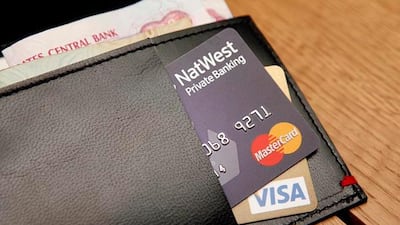A new cohort of 157 Emirati adults in Abu Dhabi went back to the basics of personal finance and learnt vital lessons on managing debt, reducing expenses, investing, retiring and everything in between.
After attending the Ghaya financial literacy programme, a three-month virtual course in Arabic, the citizens graduated on Monday feeling better prepared to make sound financial decisions.
Ghaya, which means goal in Arabic, aims to tackle the high prevalence of debt and financial mismanagement challenges faced by Abu Dhabi citizens and residents.
chairman of the Department of Community Development
The programme was first launched in 2020 by the Authority of Social Contribution – Maan – which is a part of Abu Dhabi’s Department of Social Development.
It was launched in partnership with The Abu Dhabi Global Market Academy, and the London Institute of Banking and Finance, with the support of the Abu Dhabi Social Support Authority.
Participants can include applicants from the public as well as people nominated by the Crown Prince Court, Social Support Authority and the Abu Dhabi School of Government.
Once they graduate, they have access to a financial clinic for 12 weeks, where a licensed financial adviser is available to support them.
“Financial literacy requires both knowledge and strong decision-making skills, both of which bolster individuals’ overall wellbeing," said Dr Mugheer Al Khaili, chairman of the Department of Community Development.
"It is safe to say that when people acquire financial literacy, it vastly improves their quality of life and the quality of life in society in general. The Ghaya programme is an essential component of our effort to steadily increase the quality of life in Abu Dhabi and the UAE.”
Many people in the UAE put themselves at risk by taking on personal loans and credit cards.
In a 2019 financial literacy survey by Visa, 43 per cent of respondents in the UAE aged 16 to 24 felt they were not ready to manage their money, while 53 per cent said schools did not prepare them enough to take care of their finances.
Financial literacy programmes such as Ghaya aim to improve the lives of such people struggling with high debt.
The majority of new graduates of Ghaya said the course taught them important financial tools.
The programme's organisers said 85 per cent of graduates who were interviewed after three months said they were better prepared to manage unforeseen financial difficulties, while more than 70 per cent were confident of their intention to save.
Salama Al Ameemi, director general of Maan, said the Ghaya programme has made a difference in the lives of individuals.
“Six months after the first cohort graduating, we found the majority of beneficiaries can manage their finances effectively," she said.
The UAE has launched a number of financial literacy programmes over the past years to tackle the rise of personal debt in the country. In 2019, the Central Bank of the UAE signed an agreement with Emirates Foundation to launch a financial literacy programme through the Esref Sah scheme.





